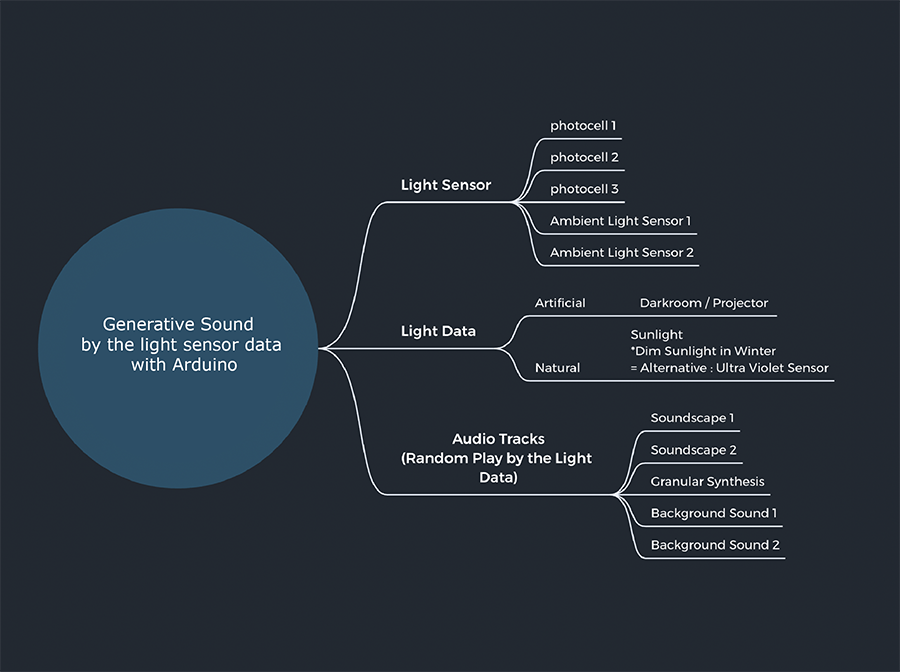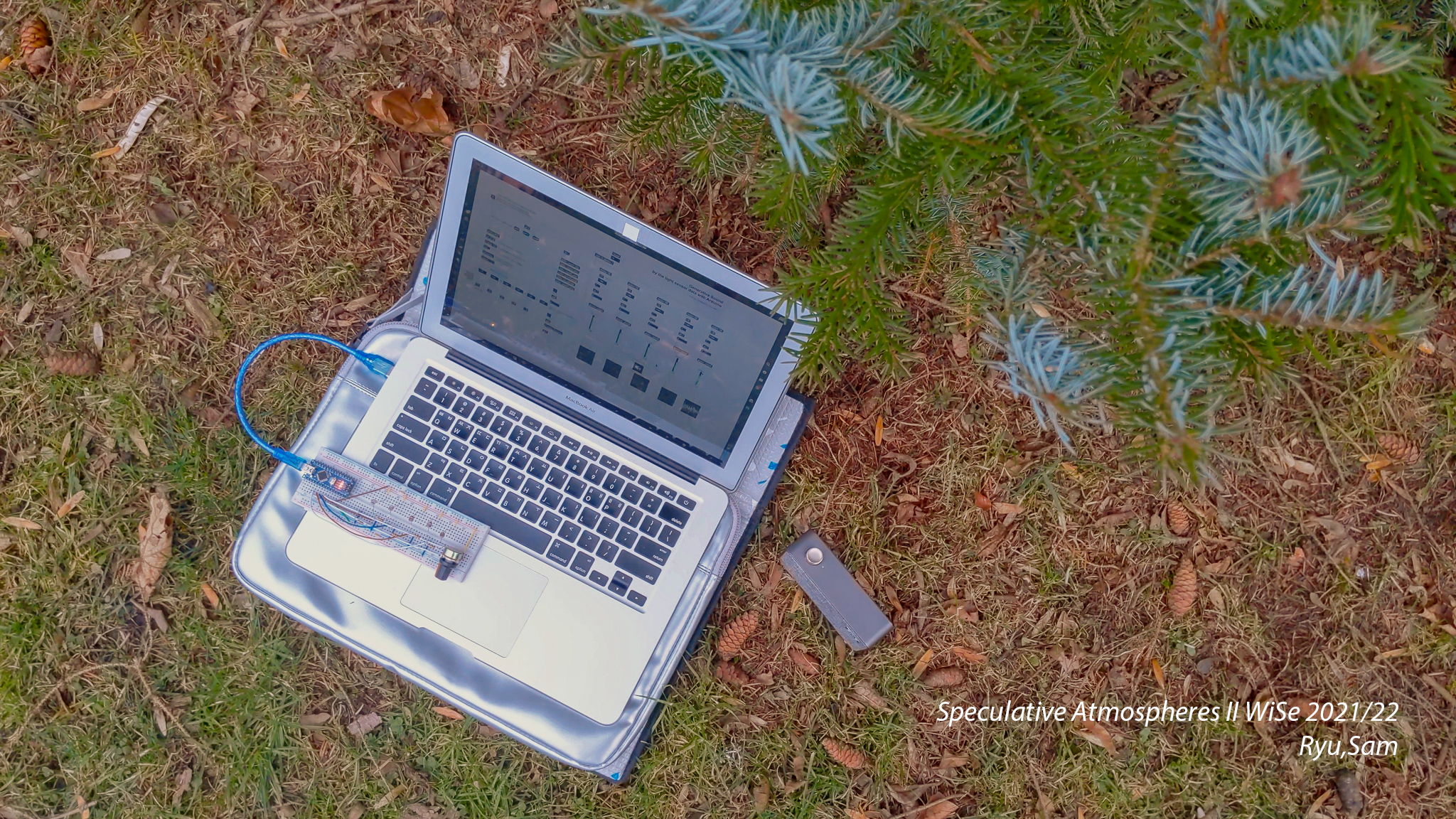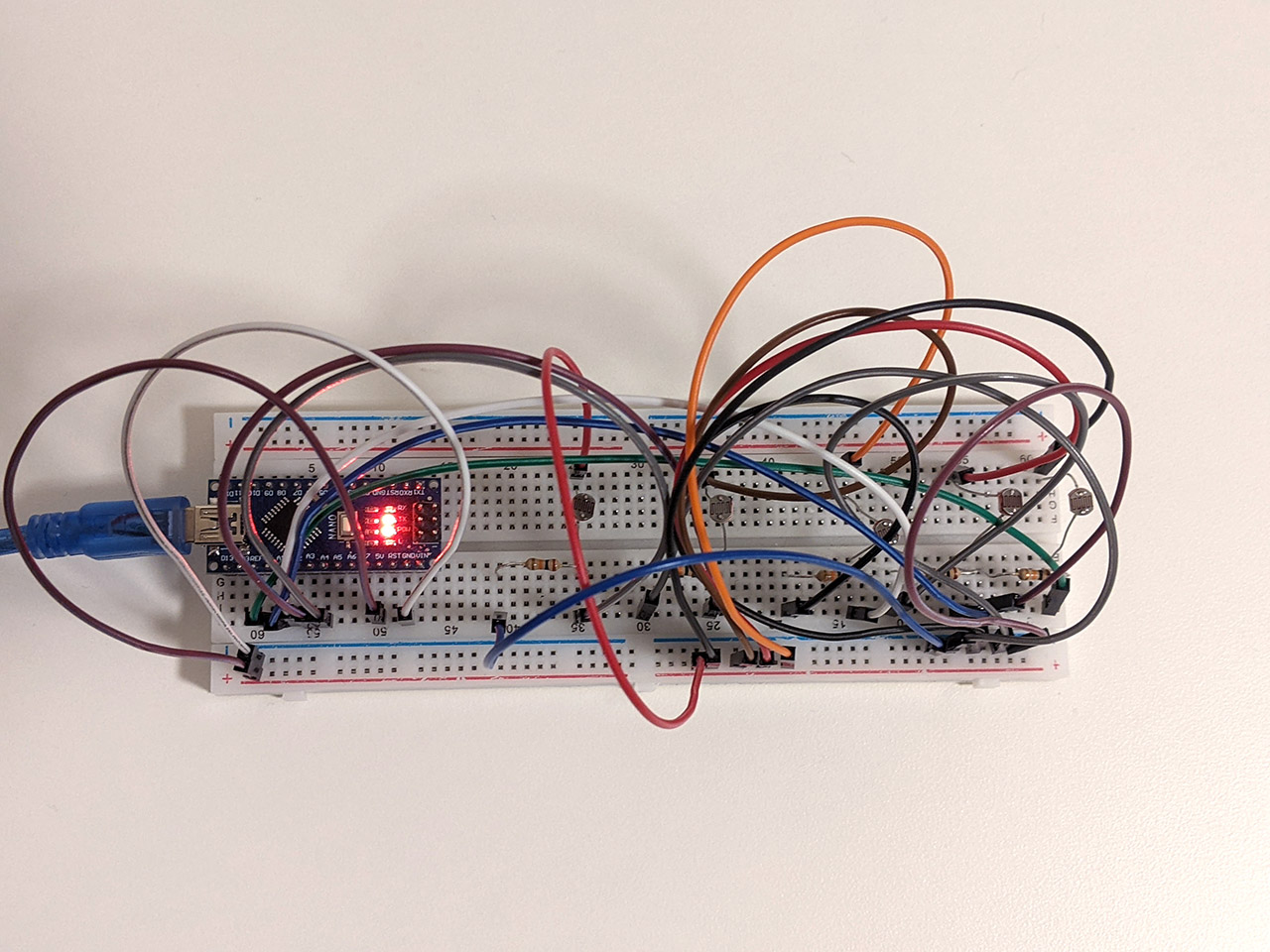No edit summary |
No edit summary |
||
| Line 6: | Line 6: | ||
- Preview Video of the experiment | - Preview Video of the experiment | ||
{{#ev:vimeo|675006332}} | {{#ev:vimeo|675006332}} | ||
Revision as of 21:56, 8 February 2022
The Light and Resonance in the Air
Speculative Atmospheres ll,WiSe 2021/22
Sound and Light Sensors Experiment with Arduino+Max/Msp by Ryu,Sam
- Preview Video of the experiment
1.IDEAS
- Mindmap
5 Light sensors are converted into values through Arduino to Max, which are converted to play in a random combination of five tracks of sound. The flow of music continues to change because the soundtrack layers are played differently each time according to the frequency of light.
Light illumination may not be dynamic outdoors in winter, so an environment where light can be used indoors as an alternative, but it would be also possible to use natural light. This is a basic attempt to make the environment compose music
2.PROCESS
A .Arduino / Sensors
01. Prepared five photoresistors (light sensors).
02. Measuring the lowest/maximum resistance value with a multimeter.
03. The resistance value is calculated according to the following formula.
R2= √R1(max)xR1(Min)
04. Connect the five photoresistors with the appropriate register (R2) to the breadboard.
B. Arduino
01. Initialize five sensors, receive data values from Arduino, and send them to Max.
//int val[5]; array.5 light sensors total
void setup()
{
Serial.begin(9600); //Serial Communication set up
}
void loop()
{
for(int i = 0; i < 5; i++){
val[i] = analogRead(i);
Serial.print(val[i]);
Serial.print(" ");
}
Serial.println();
delay(10);
}
C. MAX/MSP
01. Receive data transmitted from Arduino through Arduino and Max connection patches.
02. Sending data to five tracks by applying speed control with random values.
03. Sound generated by the data value of light.



